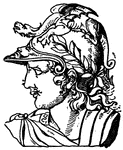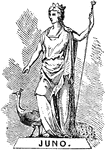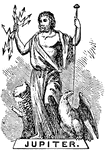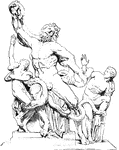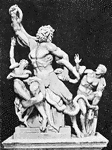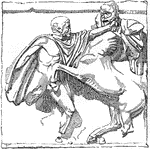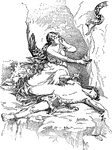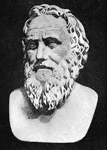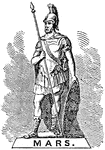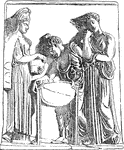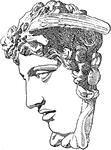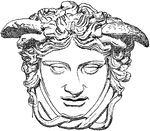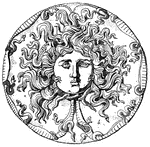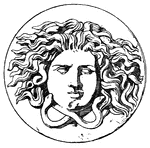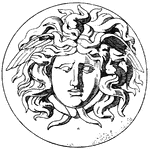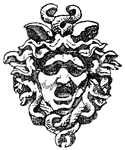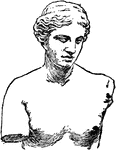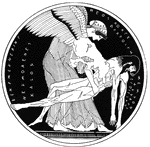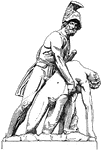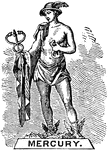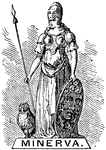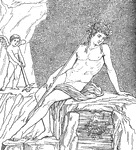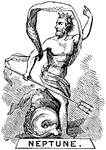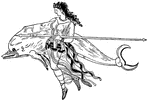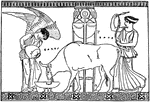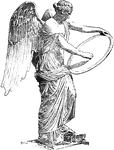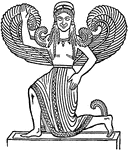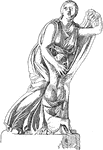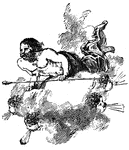65 illustrations from Greek mythology including: Jason, Juno, Jupiter, Laius, Laocoon, Lapith, Leto, Loki, Lycurgus, Mars, Medea, Medusa, Meleager, Melpomene, Memmon, Menelaus, Mercury, Midas, Minerva, Minotaur, Narcissus, Neptune, Nereid, Nike, Niobe, Oceanus, Orestes, and Orpheus
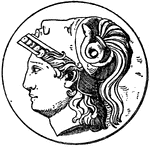
Minerva Head
The Minerva head is a design on the Greek Goddess Athena. This design frequently occurred on medallions.
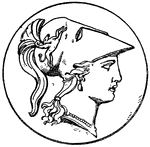
Right Minerva Head
This Right Minerva head is the modern version design of the Greek Goddess Athena. This design frequently…

Juno
"The following cut is taken from the Vatican Juno found in the ruins of Lorium." — Anthon, 1891
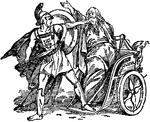
Death of Laius
"When grown up, Oedipus is told by the oracle that he would slay his father and marry his mother. On…
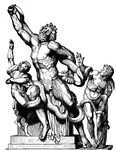
Laocoon
Trojan priest who warned the Trojans about the Greek horse. He and his two sons were killed by serpents.
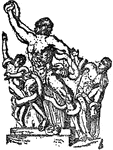
Laocoon
"In Greek legend, a priest of Apollo and Neptune, located in the city of Troy during the Trojan War.…
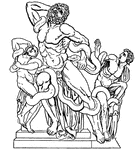
Laocoon
The son of Acoetes and allegedly a priest of Poseidon at Troy. He is famous for warning the Trojans…
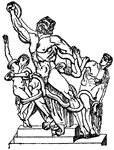
Laocoon
The son of Acoetes and allegedly a priest of Poseidon at Troy. He is famous for warning the Trojans…
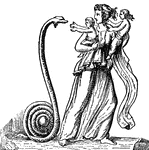
Leto or Latona
"The persecution which Latona experienced from Juno is alluded to in the story. The tradition was that…
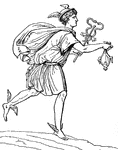
Mercury (Hermes)
"Mercury made haste, put his winged slippers on his feet, and cap on his head, took his sleep-producing…
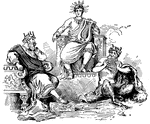
Midas
"Bacchus offered Midas his choice of a reward, whatever he might wish. He asked that whatever he might…
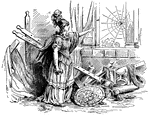
Minerva
"On Minerva's side Varro tells us that Cecrops found an olive tree and a fountain, and that on consulting…

Thesus and the Minotaur
"Thesus and the Minotaur. (From a vase-painting in the Vatican Museum.) — The Delphian Society,…
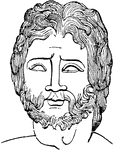
Head of Neptune
"The following cut from an antique in the British Museum, represents the head of Neptune. The hair rises…

Niobe
A personage mentioned in Greek mythology as the daughter of Tantalus and the wife of Amphion, king of…

Niobe
In Greek mythology, Niobe was a princess who had twelve children. She boasted of them to Leto who only…
